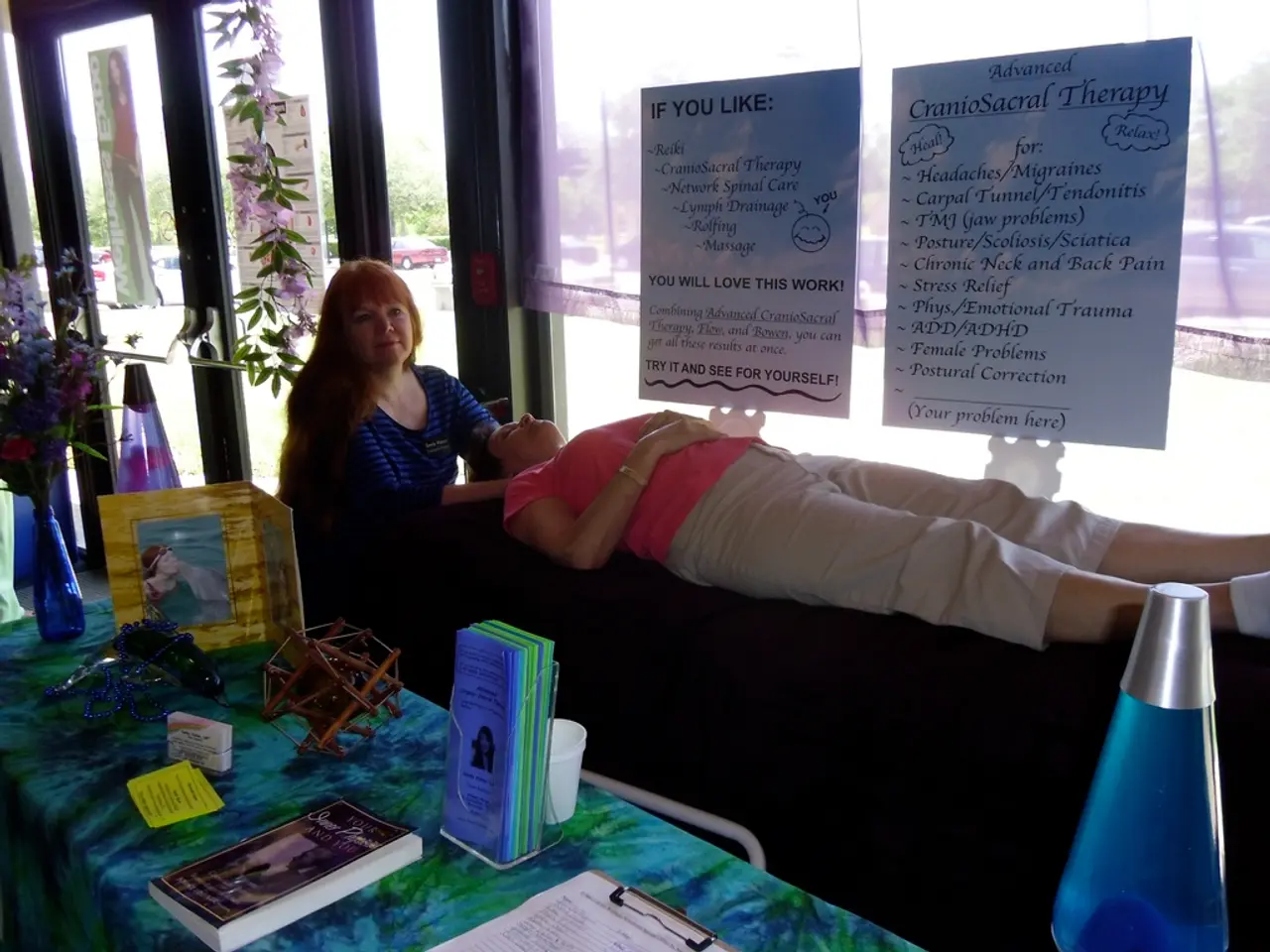Fatigue: Underlying reasons and strategies for overcoming it
Chronic lethargy and fatigue can be more than just a temporary slump. These feelings of persistent tiredness and lack of energy can be caused by a variety of long-term health conditions. This article aims to shed light on the key conditions associated with chronic lethargy and fatigue, as well as potential treatment options.
One of the most common causes of chronic fatigue is Chronic Fatigue Syndrome (CFS), also known as Myalgic Encephalomyelitis (ME). This condition is characterised by persistent fatigue that doesn't improve with rest, significantly impacting daily functioning and worsening over time.
Anxiety and depression, both mental health conditions, can also lead to chronic fatigue due to disturbances in sleep patterns and overall mental health. Anxiety causes hormonal imbalances that can leave individuals feeling drained, while depression affects sleep, diet, and energy levels.
Endocrine and metabolic disorders, such as hypothyroidism, can cause persistent fatigue due to hormonal imbalances affecting metabolism and energy production. Sleep disorders, including insomnia, sleep apnea, and narcolepsy, disrupt normal sleep patterns, leading to chronic fatigue.
Chronic pain conditions, like fibromyalgia, can cause fatigue due to ongoing pain and discomfort. Inflammatory conditions, such as rheumatoid arthritis and systemic lupus erythematosus, can lead to chronic fatigue due to ongoing inflammation in the body.
Nutritional deficiencies, including deficiencies in iron, vitamins, and minerals, can cause lethargy and fatigue by impairing energy production and immune function. Heart and lung conditions can lead to reduced oxygenation and blood flow, resulting in fatigue.
Ongoing or recurrent infections can cause prolonged fatigue. It's essential to seek medical attention if you experience sudden, severe symptoms, such as fainting, shortness of breath, pale, clammy skin, rapid breathing and heart rate, severe pain, slurred speech or difficulty speaking, difficulty controlling facial muscles, difficulty moving arms and legs, as these require immediate medical attention.
Treatment for lethargy will depend on the underlying cause and can vary greatly from person to person. Preventing lethargy may include getting enough sleep each night (but not oversleeping), avoiding overexertion, eating a varied, well-balanced diet, avoiding sugary foods, avoiding high caffeine drinks, going to bed at about the same time each night, winding down before bed, spending time away from screens, and doing calming activities.
Several medications may result in a lack of energy or feelings of indifference, and some people may be more sensitive to these effects. Discussing lethargy as a side effect with a doctor is important, as some side effects may be temporary or manageable with a change of medication.
High stress environments, physically or mentally demanding jobs, or stressful living situations may cause lethargy. Lethargy can be caused by overexertion, not getting enough sleep, stress, injury, a lack of exercise, drug or alcohol use, or an underlying health condition.
If lethargy causes changes in mood that lead to suicidal thoughts, a person needs urgent medical care. Symptoms of lethargy involve feeling slow or sluggish in both the body and brain, decreased alertness, difficulty thinking, fatigue, low physical energy, sluggishness, a loss of motivation, changes in mood, an indifferent or apathetic attitude, brain fog, sleeping too much, and oversleeping.
In the case of longer lasting lethargy, a person should see a doctor, as there may be an underlying health condition that a doctor can help identify and treat. A temporary lack of sleep or difficulty getting to sleep can cause lethargy the next day. If you are experiencing chronic lethargy and fatigue, it's crucial to consult a healthcare professional to determine the cause and find the most suitable treatment.
- Diabetes, a condition related to the body's inability to process sugar, can also lead to chronic fatigue due to energy fluctuations.
- HIV, the virus that causes AIDS, can cause fatigue as a result of weakened immune systems and associated infections.
- Bipolar disorder, a mental health condition characterized by extreme mood swings, can cause fatigue due to its emotional and energy-draining episodes.
- Asthma, a chronic respiratory disease, can lead to fatigue due to nighttime symptoms that disrupt sleep.
- Prep, which stands for Pre-Exposure Prophylaxis, a medication used to prevent HIV, doesn't directly cause fatigue, but its side effects might include feelings of tiredness.
- Predictive modelling in science can help in understanding the complex interplay of factors contributing to chronic fatigue, providing insights for preventive measures and treatments.
- Outdoor activities, such as walking, cycling, or gardening, can help alleviate symptoms of chronic fatigue by promoting better sleep and mental health.
- Eczema, a skin condition characterized by itchy, red, scaly patches, can cause fatigue due to disrupted sleep from itching and scratching.
- Type 2 diabetes, a condition characterized by high blood sugar levels due to insulin resistance, shares similarities with obesity in terms of contributing to chronic fatigue due to energy fluctuations and metabolic imbalances. AQ, which stands for Asthma Quality of Life Questionnaire, doesn't directly cause fatigue, but it can reflect how asthma-related symptoms and management affect a person's energy levels and subsequent fatigue.




